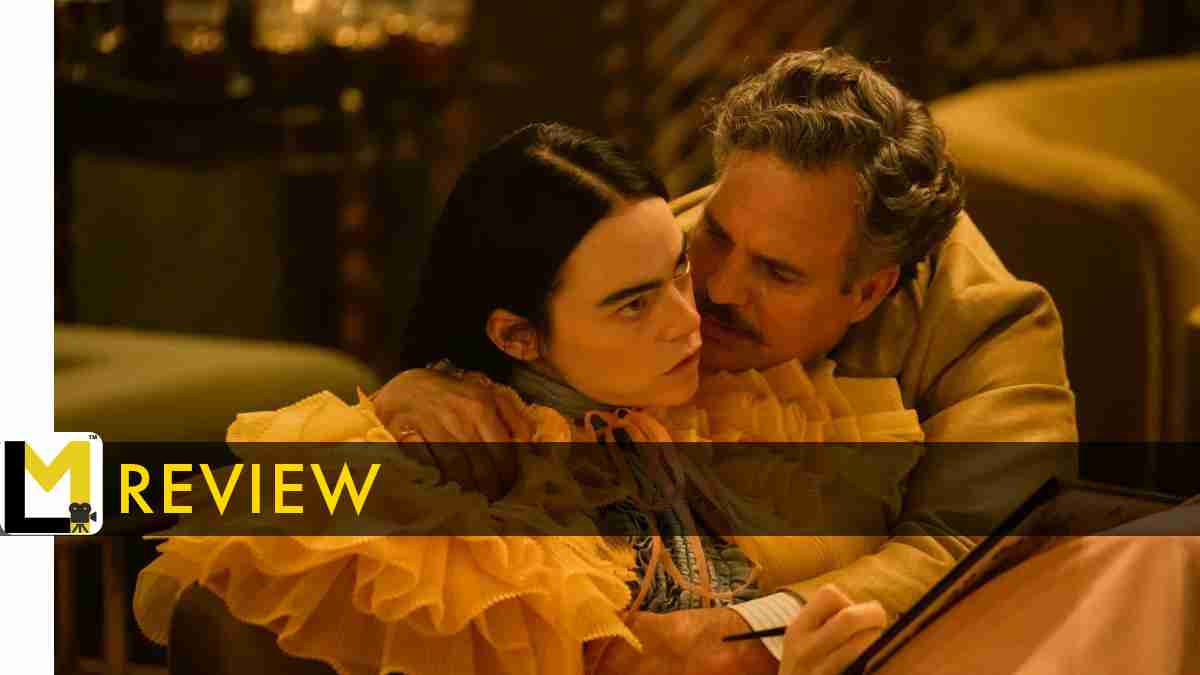Poor Things, which won four Academy Awards this year, including Best Actress for Emma Stone, is quite a visual film that blends too many genres with imaginative and totally unconventional cinematic choices. From extremely wide lenses for visualizations to an unrealistic setting, Yorgos Lanthimos unsettles the viewer from the very first visual, and what you eventually get is a political film that scores for its craft over its agenda. With Emma Stone delivering a remarkable performance as the lead character, Poor Things feels like a breath of fresh air in storytelling.
The story is set in this fictional 19th century, where a surgeon named Godwin Baxter has done a crazy experiment on one of his patients. He had swapped the patient’s brain with her yet-to-be-born child’s brain. After the surgery, it gave birth to this new human being, whom Baxter named Bella, who has the body of a fully grown adult and the understanding of a baby. The coming-of-age journey of Bella Baxter is what we see in Poor Things.
What is so peculiar about Yorgos Lanthimos’ film is that you can assign a wide range of genres to this film, and it will fit into all that in a very unconventional way. It is definitely a fantasy film. But it evolves into a black comedy and sex comedy at times, eventually stabilizing itself in the form of a self-discovery journey of a woman who questions the basic stereotypes in gender roles. For those in India, I would say Poor Things is somewhat like a very eccentric, totally uninhibited and extremely political version of something similar to PK by Rajkumar Hirani. Bella Baxter is a woman who questions the roles assigned to women by men, and her innocence and lack of knowledge are making her raise fundamental and significant questions.
Emma Stone is just brilliant in being Bella. What I liked about how she has performed and how the movie has shown her progress is how seamless the evolution was. In the initial bits, she is pretty much a child who doesn’t even know words properly. Then it graduates into grammarless sentences, and eventually, she becomes that person who knows how to construct a sentence very smartly. Stone performs these transitions in terms of body language and dialogue rendering so brilliantly. Mark Ruffalo, as the womanizer Duncan Wedderburn, is definitely playing a character that is totally not in his zone, and with that attire and expressions he really felt apt for the part. Willem Dafoe, even with those prosthetic makeup manages to pull off a really convincing performance as the creator God, aka Godwin Baxter. Ramy Youssef as the perplexed Max McCandles and Christopher Abbott as the patriarchal Alfie Blessington are the other names in the cast.
The filmography of Yorgos Lanthimos comprises films with a very wacky filmmaking sensibility, and that hasn’t changed for Poor Things as well. From the aspect ratio to the extensive use of extremely wide lenses, Lathimos is trying to emphasize the absurdity at every point. He uses black and white visuals to show us the caged phase of Bella. And there is this vintage cinema tribute-like Zoom in, Zoom out and whip pans happening in many scenes. There is that blunt approach towards the idea of a woman understanding womanhood, and that leads to a lot of nudity in the film. But the good thing is that rather than creating a distraction, the placement of those scenes is such that the PK-like questioning nature of Bella would make us engage in that political debate of the film. The colour-rich production design and costumes enhance the unorthodox craft of Yorgos Lanthimos.
Poor Things is taking ample time to reach that point where you sort of get the kick of the concept. Out of the 142 minutes of runtime, the most exciting phase is the last 50 minutes, where Bella starts to apply her learning to make it difficult for the ones who want to cage her literally and psychologically. If you enjoy the rule-breaking visual filmmaking that acknowledges the importance of craft in political storytelling, I would say Poor Things will surely give you that cinematic delight.
If you enjoy the rule-breaking visual filmmaking that acknowledges the importance of craft in political storytelling, I would say Poor Things will surely give you that cinematic delight.
Green: Recommended Content
Orange: The In-Between Ones
Red: Not Recommended


